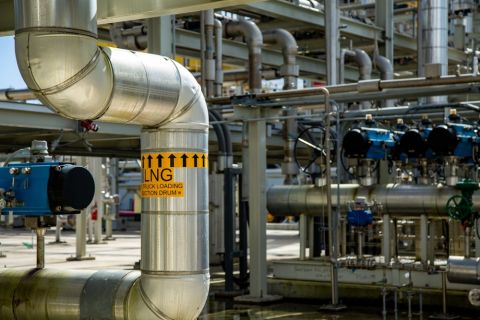Future energy needs could be met in radically different ways, says Royal Dutch/Shell chairman Philip Watts: "dynamics as usual" or "the spirit of the coming age." "Under the first scenario, we could see an evolutionary progression-the so-called carbon shift-from coal to gas, to renewables, or possibly even to nuclear," Watts told business leaders, nongovernmental organization members, academicians and regulators at a meeting organized by the United Nations Development Program in New York. "The second explores something rather more revolutionary: the potential for a truly hydrogen economy, growing out of new and exciting developments in fuel cells, advanced hydrocarbon technologies and carbon dioxide sequestration." Whichever scenario plays out, Shell believes natural gas will move to center stage, "to become what I call the bridging fuel to get us from where we are now to where we will be in the future." "In fact, expanding the use of natural gas is perhaps the single most important way of responding to the issue of climate change. And I can tell you that Royal Dutch/Shell is uniquely placed because of its technical expertise and geographical spread to be a prime mover in this transitional period." But Watts also emphasized that the world's energy future must extend beyond existing markets. "One person in five of the world's population does not have access to supplies of commercial energy. It is our goal to contribute to the development of an affordable sustainable energy system which will help reduce this sort of inequality," he said.
Recommended Reading
Battalion in Compliance with NYSE American after 2023 Meeting
2024-02-13 - Previously, Battalion Oil was not in compliance with the NYSE after failing to hold an annual meeting of stockholders during the fiscal year ending Dec. 31.
JMR Services, A-Plus P&A to Merge Companies
2024-03-05 - The combined organization will operate under JMR Services and aims to become the largest pure-play plug and abandonment company in the nation.
New Fortress Energy Sells Two Power Plants to Puerto Rico
2024-03-18 - New Fortress Energy sold two power plants to the Puerto Rico Electric Power Authority to provide cleaner and lower cost energy to the island.
Tellurian Executive Chairman ‘Encouraged’ by Progress
2024-03-18 - Tellurian announced new personnel assignments as the company continues to recover from a turbulent 2023.
Kissler: OPEC+ Likely to Buoy Crude Prices—At Least Somewhat
2024-03-18 - By keeping its voluntary production cuts, OPEC+ is sending a clear signal that oil prices need to be sustainable for both producers and consumers.





